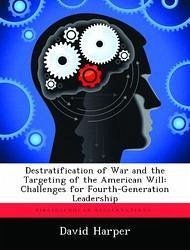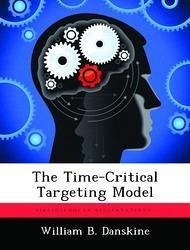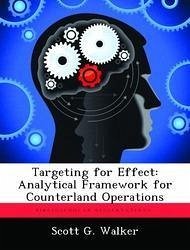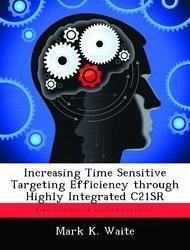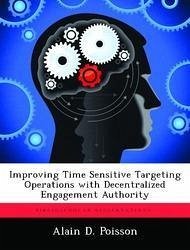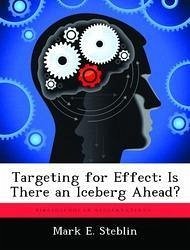
Targeting for Effect
Is There an Iceberg Ahead?
Versandkostenfrei!
Versandfertig in über 4 Wochen
15,99 €
inkl. MwSt.

PAYBACK Punkte
8 °P sammeln!
Some airpower enthusiasts see the Desert Storm air campaign as the fruition of the ideas of Douhet and Mitchell and as the final fulfillment of their promises. The reason for their excitement is embodied in the belief that the concept of parallel war and an effects-based strategy promises a new capability for the conduct of future wars. The capability to control an enemy quickly and without having to destroy him has been the goal of military forces from the time of Sun Tzu. This paper summarizes the current literature on controlling an enemy through an effects-based airpower strategy. It begin...
Some airpower enthusiasts see the Desert Storm air campaign as the fruition of the ideas of Douhet and Mitchell and as the final fulfillment of their promises. The reason for their excitement is embodied in the belief that the concept of parallel war and an effects-based strategy promises a new capability for the conduct of future wars. The capability to control an enemy quickly and without having to destroy him has been the goal of military forces from the time of Sun Tzu. This paper summarizes the current literature on controlling an enemy through an effects-based airpower strategy. It begins with the ideas of the early theorists such as Douhet and Mitchell to demonstrate that while they were the first to think about effects, they were unable to pursue any effects-based strategy due to the limitations of precision. As precision matured, it allowed the concept of parallel war to be pursued during Desert Storm. Unfortunately, the current application of precision and the concept of parallel warfare is not really the effects-based strategy claimed by its proponents. Both Desert Storm and Bosnia serve as examples to show how effects capabilities were limited by the tactics, resources and strategy along with the real world limitations of current systems. This paper suggests that while an effects-based strategy offers tremendous potential, there are several key areas lacking emphasis. For example, the current weapons systems and those planned for the next generation simply continue to look at destruction rather than effects. we must develop weapons for effects and not solely on the destruction based systems we are currently developing. Planning is essential to look at how we plan for and conduct operations based on effects-based strategy. This work has been selected by scholars as being culturally important, and is part of the knowledge base of civilization as we know it. This work was reproduced from the original artifact, and remains as true to the original work as possible. Therefore, you will see the original copyright references, library stamps (as most of these works have been housed in our most important libraries around the world), and other notations in the work. This work is in the public domain in the United States of America, and possibly other nations. Within the United States, you may freely copy and distribute this work, as no entity (individual or corporate) has a copyright on the body of the work. As a reproduction of a historical artifact, this work may contain missing or blurred pages, poor pictures, errant marks, etc. Scholars believe, and we concur, that this work is important enough to be preserved, reproduced, and made generally available to the public. We appreciate your support of the preservation process, and thank you for being an important part of keeping this knowledge alive and relevant.



